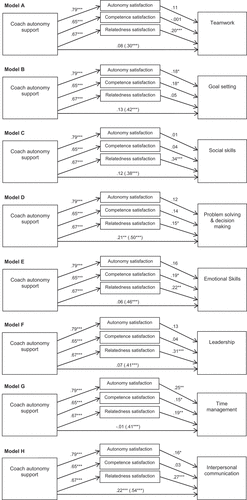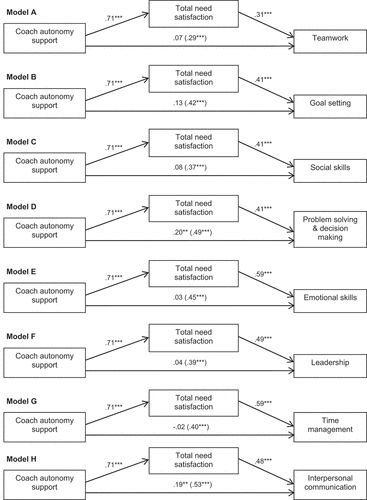Figures & data
Table 1. Reliability Coefficients, Means Scores, Standard Deviations, and Correlations for All Variables
Table 2. Indirect Effects of Coach Autonomy Support on Participants’ Development of Each Life Skills Through the Three Mediators
Figure 1. Models predicting all eight life skills. Values signify unstandardized regression coefficients. The direct effect of coach autonomy support on each of the life skills are outside the parentheses. The total effects are inside the parentheses. Gender, age group, controlling coaching, and autonomy, competence, and relatedness frustration were entered as covariates in all models.

Figure 2. Models predicting all eight life skills. Values signify unstandardized regression coefficients. The direct effect of coach autonomy support on each of the life skills are outside the parentheses. The total effects are inside the parentheses. Gender, age group, controlling coaching, and autonomy, competence, and relatedness frustration were entered as covariates in all models.

